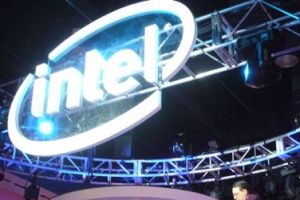EU hits Intel with new competition charges
Following our report on Wednesday that a fresh set of antitrust charges were imminent, the EU has confirmed plans to take action against the chip maker.

EU antitrust regulators have formally lodged new claims of anticompetitive behaviour against Intel, the world's leading chip maker.
The move is in line with IT PRO's report on Wednesday, when we revealed that the EU was poised to take further action over claims Intel paid retailers not to sell PCs using chips made by rival AMD.
The "statement of objections" from the European Commission follows 2007 charges that Intel gave computer makers rebates to limit their use of AMD chips or avoid them altogether.
The expansion of the accusation means the Commission is now weighing charges that Intel illegally fiddled with both the wholesale and retail market for PC processors in an effort to shut its closest competitor out.
"The Commission also considers at this stage of its analysis that all the types of conduct reinforce each other and are part of a single overall anti-competitive strategy aimed at excluding AMD or limiting its access to the market," the EU's executive body said in a statement.
A Commission statement said Intel had provided substantial rebates to a leading European personal computer retailer, conditioned on it selling only Intel-based PCs.
Secondly, the Commission said Intel paid a PC maker to delay the planned launch of a product line that used AMD processors.
Get the ITPro. daily newsletter
Receive our latest news, industry updates, featured resources and more. Sign up today to receive our FREE report on AI cyber crime & security - newly updated for 2024.
Thirdly, it gave the same computer maker substantial rebates to encourage it to get all its processors for laptops from Intel, the Commission said.
Intel lawyer Steve Rodgers said he was disappointed by the new charges, which centred on whether it was lawful or not to issue price discounts.
"The result will be higher computer prices because it prevents Intel from offering discounts," he said. "Offering discounts is central to competition and good for consumers."
Intel chips are used in around 80 per cent of the world's computers. AMD accounts for almost all the remainder.
The Commission could fine Intel, though any penalty would be unlikely to approach a cap of 10 per cent of annual turnover. It could possibly damage the firm's reputation by labelling the company an unfair competitor.
Rodgers said Intel had been given eight weeks to respond to the charges, and would study them in detail before responding to the Commission in writing.
In June, South Korean authorities fined Intel about $26 million (13 million), finding it had offered rebates to South Korean PC makers including Samsung and Trigem in return for not buying AMD chips.




